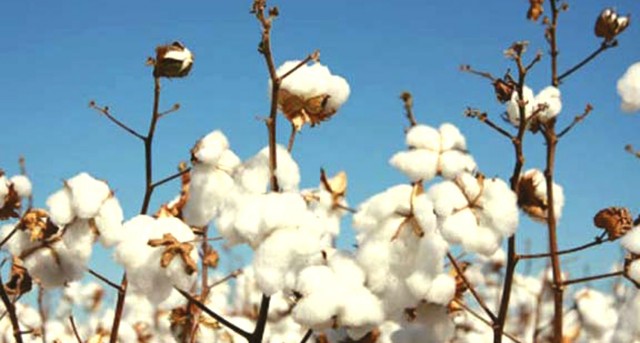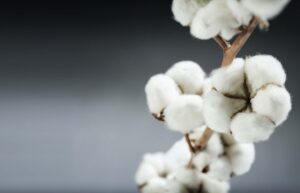LAHORE:
Pakistan’s cotton production dropped to 5.6 million bales last season, marking the lowest output in 30 years, said the president of Pakistan-China Joint Chamber of Commerce and Industry (PCJCCI) at a think-tank session at the PCJCCI Secretariat on Friday.
According to a statement, PCJCCI President Nazir Hussain highlighted that research conducted by the Central Cotton Research Institute (CCRI) showed that the decline in cotton production had reduced profitability of farmers. Consequently, many are shifting from cotton to sugarcane cultivation in the traditional cotton-growing areas in search of better income.
He noted that sugarcane plants were draining water resources essential for cotton crop, which was contributing to increased humidity in the whole cotton cultivation area. The high humidity produces more insects, which are deadly for cotton plants, while farmers lack the necessary technology to effectively deal with such challenges.
He pointed out that climate change had severely impacted Pakistan in recent years, weakening cotton’s strength and staple elongation.
Another quality issue is the impurity caused by 100% manual picking. As pickers handle, store and transport cotton, contamination occurs, causing spots on the final product. To address the challenges, Pakistan and China are deepening cooperation in the cotton sector.
PCJCCI Senior Vice President Brigadier (Retd) Mansoor Saeed Sheikh praised the excellent heat resistance quality of Pakistani cotton, adding that Pakistani seeds also needed the high-yield and high-quality traits of Chinese cotton.
Germplasm resources of China and Pakistan are complementary and both countries could collaborate to send new cotton seeds to Pakistan for adaptability testing. The best-performing varieties could then be selected for production, he suggested.
“We are combining the advantages of cotton from both countries to create new varieties. This is one of the microcosms of the ongoing China-Pakistan cotton collaboration,” he said.
PCJCCI Vice President Zafar Iqbal stated that the Xinjiang Agricultural University and the University of Agriculture Faisalabad had been cooperating in cotton cultivation for a few years. They have experimental fields in Faisalabad and plan to test mechanical picking.
In north Xinjiang, one of the largest cotton-growing regions, mechanisation covers 90% of farms, where machine-picking is being used everywhere. He added that the drought-resistant and water-saving technologies of Xinjiang, such as drip irrigation and mulching, were leading the world.
These technologies and equipment can be transferred to Pakistan to assist farmers in coping with challenges. China and Pakistan must collaborate to improve cotton production together, Iqbal stressed.
PCJCCI Secretary General Salahuddin Hanif announced that a modern biotechnology laboratory was about to be set up at the CCRI to promote cotton research. He hailed CPEC for opening new avenues for cotton research and development to put the Pakistan Central Cotton Committee on modern scientific lines.











